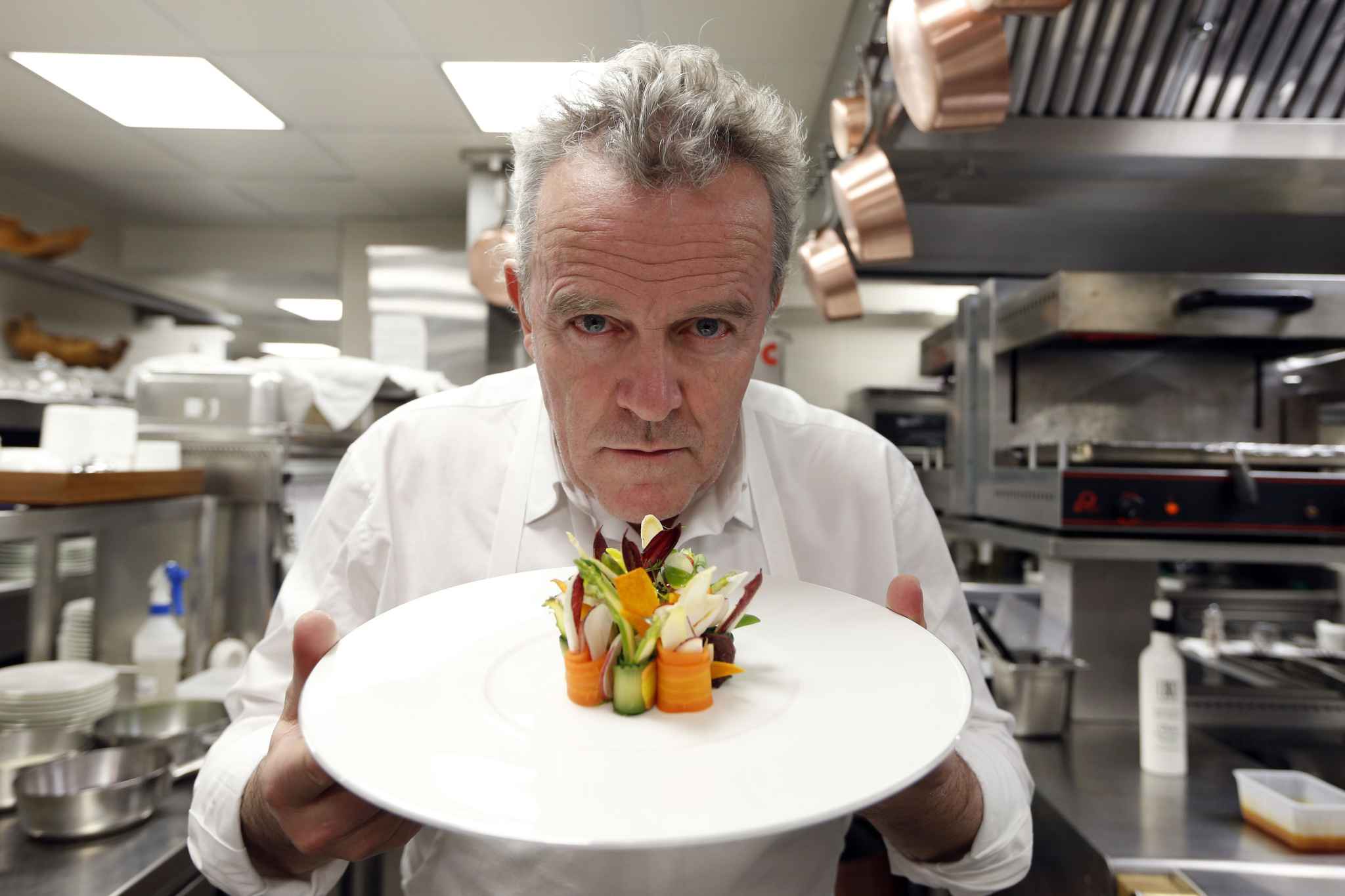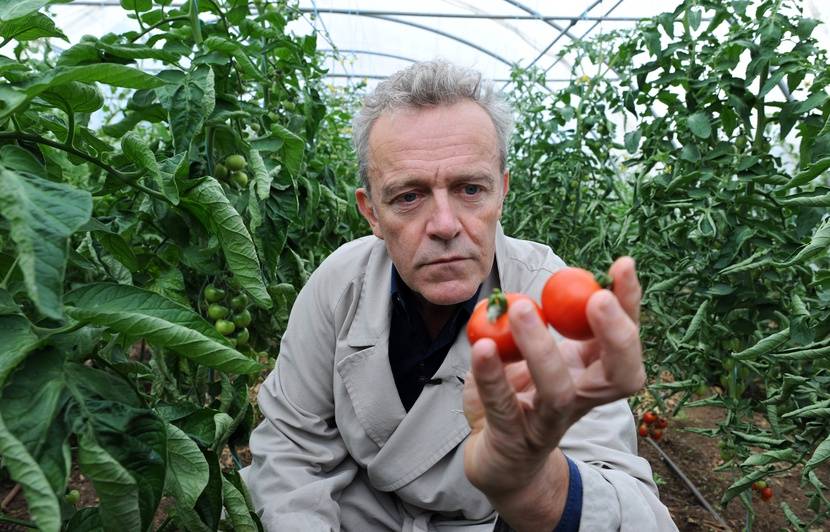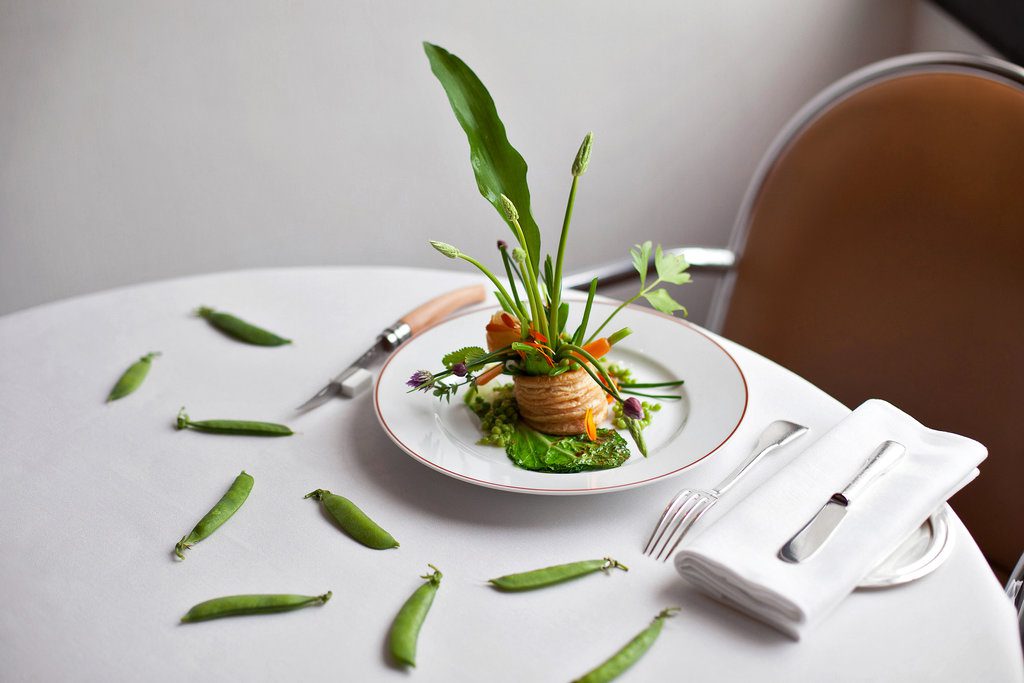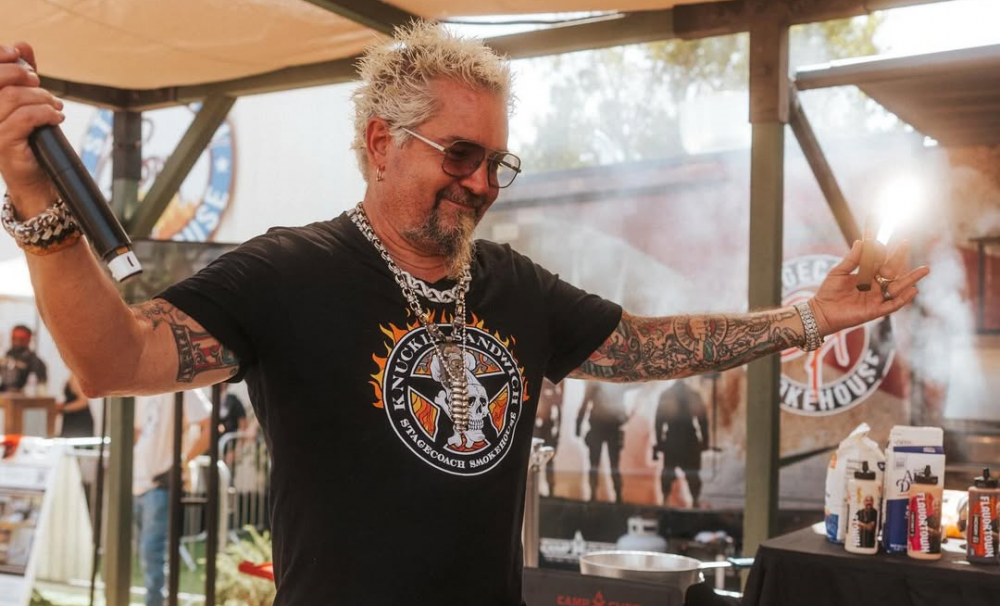Chef Alain Passard announced about 20 years ago that his French restaurant, L’Arpege would become fully vegetarian. This was after it had been serving meat delicacies in the past, and already had three complete Michelin stars in the bag.
The restaurant was so far a very successful one just after about 10 years of its existence, but for Passard, the eco-friendly sustainability of food in fine dining was the real goal. Although some say he got bored of cooking meat, the fact remains that through his actions, he pioneered green fine dining.

IMDb | Chef Alain Passard is growing his own food locally without relying on already processed products
Following his decision to go strictly vegetarian, the chef began to invest in growing his own food locally without relying on already processed products. And in a bid to support the local farmers as well, he sometimes made use of their organic and naturally grown produce.
The French chef says he chooses to experience food from its inception as a seed until it ends up on the plate to be served as a meal. Presently Passard owns three gardens that deliver fresh produce to the restaurant at least twice a day. The different gardens grow distinct veggies based on the soil conditions that favor certain types of vegetables. He grows carrots and asparagus in the sand, celeriac, and cabbage in clay, and most of the aromatic herbs in alluvia.
Everything is natural. Even pest control employs animals as natural predators against pests and insects that would most definitely destroy the plants if left alone. The farms produce more than 500 different types of vegetables, fruits, and herbs, and as a result, the restaurant is fully stocked on vegetables for the chef to play around with in the kitchen. It also happens that Passard doesn’t have any specific recipe for the meals. He simply works with what is available for the farm and gets creative.

20 Minutes | The farms produce more than 500 different types of vegetables, fruits, and herbs
L'Arpege, leading the vegetarian-style celebrity restaurant cuisine, has received interesting reviews from several critics. Running a vegetarian restaurant is expensive hard work, but the customers are the ones who bear the brunt of the cost for the quality of the meals.
In 2014, Wells from the New York Times clearly voiced out the expensive cost of meals at the restaurant, but still expressed that they were exceptional. Another critic said the restaurant was the happiest place in the world for vegetables.
But how sustainable could a restaurant like this be? Considering the cost of green fine dining and the ever-increasing number of other restaurants in Paris that offer more affordable options to customers, the restaurant may as well be operating in past glory.
The expensive nature of the meals at L’Arpege has had critics wonder if it is worth it to have a comparatively average meal at such a high cost, all in the name of sustainable or green fine dining. In terms of taste, it is undeniable that Passard is a genius at creating exquisite food from the simplest of ingredients.

The New York Times | Green fine dining is a new trend in the industry for the environmentally conscious
Although vegetables still dominate the menu, L’Arpege has reintroduced meat and fish in recent times, as it couldn’t keep up with serving strictly vegetarian dishes.








